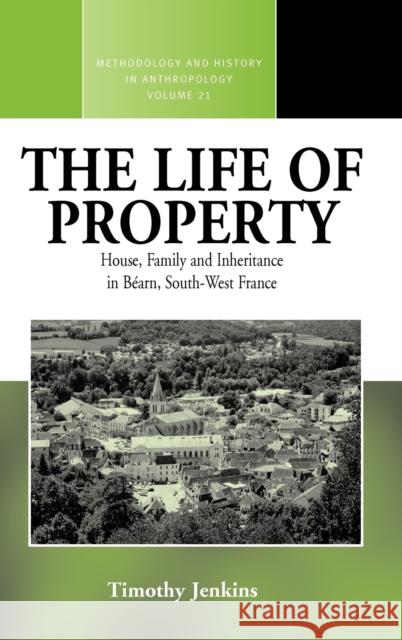The Life of Property: House, Family and Inheritance in Béarn, South-West France » książka
The Life of Property: House, Family and Inheritance in Béarn, South-West France
ISBN-13: 9781845456672 / Angielski / Twarda / 2010 / 208 str.
The Life of Property: House, Family and Inheritance in Béarn, South-West France
ISBN-13: 9781845456672 / Angielski / Twarda / 2010 / 208 str.
(netto: 480,17 VAT: 5%)
Najniższa cena z 30 dni: 498,70
ok. 30 dni roboczych
Bez gwarancji dostawy przed świętami
Darmowa dostawa!
In Bearn, a region of south-west France, longstanding and resilient ideas of property and practices of inheritance control the destinies of those living in the foothills of the Pyrenees. Based on extensive fieldwork and archival research that combines ethnography and intellectual history, this study explores the long-term continuities of this particular way of life within a broad framework. These local ideas have found expression twice at the national level. First, sociological arguments about the family, proposed by Frederic Le Play, shaped debates on social reform and the repair of national identity during the last third of the nineteenth century - and these debates would subsequently influence contemporary European thought and social policy. Second, these local ideas entered into late twentieth-century sociological categories through the influential work of Pierre Bourdieu. Through these examples and others, the author illustrates the multi-layered life of these local concepts and practices and the continuing contribution of the local to modern European national history. Timothy Jenkins was trained in anthropology at the Oxford Institute of Social and Cultural Anthropology. In 1992, he was appointed a Fellow of Jesus College, Cambridge, and in 2001, became an Assistant Director of Research (ADR) at the University of Cambridge; he currently holds these two posts. His interests are in European, particularly British and French, ethnography, as well as anthropological theory and the history of ideas. Among his publications is Religion in English Everyday Life: an Ethnographic Approach (Berghahn Books, 1999).
In Béarn, a region of south-west France, longstanding and resilient ideas of property and practices of inheritance control the destinies of those living in the foothills of the Pyrenees. Based on extensive fieldwork and archival research that combines ethnography and intellectual history, this study explores the long-term continuities of this particular way of life within a broad framework. These local ideas have found expression twice at the national level. First, sociological arguments about the family, proposed by Frédéric Le Play, shaped debates on social reform and the repair of national identity during the last third of the nineteenth century - and these debates would subsequently influence contemporary European thought and social policy. Second, these local ideas entered into late twentieth-century sociological categories through the influential work of Pierre Bourdieu. Through these examples and others, the author illustrates the multi-layered life of these local concepts and practices and the continuing contribution of the local to modern European national history.Timothy Jenkins was trained in anthropology at the Oxford Institute of Social and Cultural Anthropology. In 1992, he was appointed a Fellow of Jesus College, Cambridge, and in 2001, became an Assistant Director of Research (ADR) at the University of Cambridge; he currently holds these two posts. His interests are in European, particularly British and French, ethnography, as well as anthropological theory and the history of ideas. Among his publications is Religion in English Everyday Life: an Ethnographic Approach (Berghahn Books, 1999).











